
A big band or jazz orchestra is a type of musical ensemble of jazz music that usually consists of ten or more musicians with four sections: saxophones, trumpets, trombones, and a rhythm section. Big bands originated during the early 1910s and dominated jazz in the early 1940s when swing was most popular. The term "big band" is also used to describe a genre of music, although this was not the only style of music played by big bands.
Swing music is a style of jazz that developed in the United States during the late 1920s and early 1930s. It became nationally popular from the mid-1930s. Swing bands usually featured soloists who would improvise on the melody over the arrangement. The danceable swing style of big bands and bandleaders such as Benny Goodman was the dominant form of American popular music from 1935 to 1946, known as the swing era, when people were dancing the Lindy Hop. The verb "to swing" is also used as a term of praise for playing that has a strong groove or drive. Musicians of the swing era include Duke Ellington, Benny Goodman, Count Basie, Cab Calloway, Benny Carter, Jimmy Dorsey, Tommy Dorsey, Woody Herman, Earl Hines, Bunny Berigan, Harry James, Lionel Hampton, Glenn Miller, Artie Shaw, Jimmie Lunceford, and Django Reinhardt.
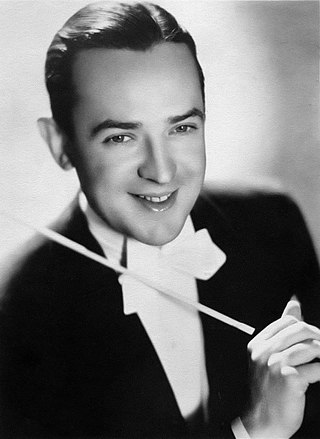
James Francis Dorsey was an American jazz clarinetist, saxophonist, composer and big band leader. He recorded and composed the jazz and pop standards "I'm Glad There Is You " and "It's The Dreamer In Me". His other major recordings were "Tailspin", "John Silver", "So Many Times", "Amapola", "Brazil ", "Pennies from Heaven" with Bing Crosby, Louis Armstrong, and Frances Langford, "Grand Central Getaway", and "So Rare". He played clarinet on the seminal jazz standards "Singin' the Blues" in 1927 and the original 1930 recording of "Georgia on My Mind", which were inducted into the Grammy Hall of Fame.

Jo Elizabeth Stafford was an American traditional pop singer, whose career spanned five decades from the late 1930s to the early 1980s. Admired for the purity of her voice, she originally underwent classical training to become an opera singer before following a career in popular music, and by 1955 had achieved more worldwide record sales than any other female artist. Her 1952 song "You Belong to Me" topped the charts in the United States and United Kingdom, becoming the second single to top the UK Singles Chart, and the first by a female artist to do so.

The Pied Pipers are an American popular singing group originally formed in the late 1930s. They had several chart hits throughout the 1940s, both under their own name and in association with Tommy Dorsey, with Johnny Mercer and with Frank Sinatra.
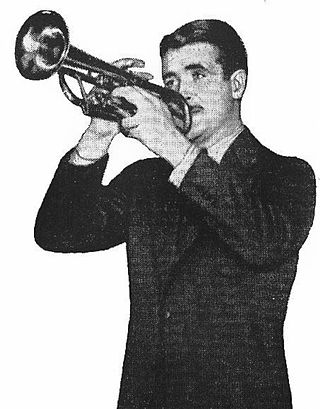
Roland Bernard "Bunny" Berigan was an American jazz trumpeter and bandleader who rose to fame during the swing era. His career and influence were shortened by alcoholism, and ended with his early demise at the age of 33 from cirrhosis. Although he composed some jazz instrumentals such as "Chicken and Waffles" and "Blues", Berigan was best known for his virtuoso jazz trumpeting. His 1937 classic recording "I Can't Get Started" was inducted into the Grammy Hall of Fame in 1975.
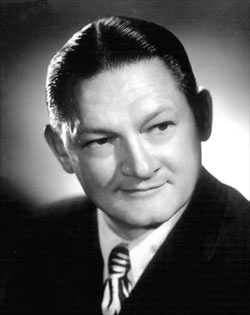
Albert Victor Young was an American composer, arranger, violinist and conductor. Young was posthumously awarded the Academy Award for Best Music Score of a Dramatic or Comedy Picture for Around the World in 80 Days at the 29th Academy Awards in 1957.

Axel Stordahl was an American arranger and composer who was active from the late 1930s through the 1950s. He is perhaps best known for his work with Frank Sinatra in the 1940s at Columbia Records. With his sophisticated orchestrations, Stordahl is credited with helping to bring pop arranging into the modern age.

Seger Pillot Ellis was an American jazz pianist and vocalist. He also made a few brief film appearances, most notably in collaboration with director Ida Lupino.

Melvin James "Sy" Oliver was an American jazz arranger, trumpeter, composer, singer and bandleader.
Reuben Bloom was an American songwriter, pianist, arranger, band leader, recording artist, vocalist, and author.

Frederic Efrem Rich was a Polish-born American bandleader and composer who was active from the 1920s to the 1950s. Among the musicians in his band were the Dorsey Brothers, Joe Venuti, Bunny Berigan, and Benny Goodman. In the early 1930s, Elmer Feldkamp was one of his vocalists.

Ray McKinley was an American jazz drummer, singer, and bandleader. He played drums and later led the Major Glenn Miller Army Air Forces Orchestra in Europe. He also led the new Glenn Miller Orchestra in 1956.
Joseph Hilton "Nappy" Lamare was an American jazz banjoist, guitarist, and vocalist.

Constance Foore "Connee" Boswell was an American vocalist born in Kansas City, Missouri, but raised in New Orleans, Louisiana. With sisters Martha and Helvetia "Vet", she performed in the 1920s and 1930s as the trio The Boswell Sisters. They started as instrumentalists but became a highly influential singing group via their recordings and film and television appearances.

William 'Red' McKenzie was an American jazz vocalist and musician who played a comb as an instrument. He played the comb-and-paper by placing paper, sometimes strips from the Evening World, over the tines and blowing on it, producing a sound like a kazoo.

Sykes "Smith" Ballew was an American actor, sophisticated singer, orchestra leader, and a western singing star. He also was billed as Buddy Blue, Charles Roberts, and Billy Smith.

Richard Tobin McDonough was an American jazz guitarist and banjoist. Perhaps best remembered for his duets with fellow guitarist Carl Kress, McDonough appeared on numerous record sessions and radio broadcasts throughout the 1920s and 1930s.
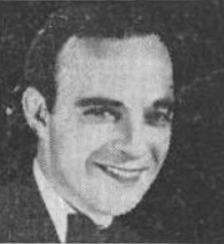
Richard Joseph Robertson was an American popular big band singer and songwriter of the 1930s and 1940s. He sang for many bandleaders such as Leo Reisman and Roger Wolfe Kahn and His Orchestra, and was on the artist roster at Banner Records. In fact, he was one of the most prolific New York based vocalists on scores of records from late 1928 through the mid 1930s. A series of records issued on Melotone/Perfect/Banner/Oriole/Romeo, Crown, Bluebird from 1930-1934 were issued under his name or are listed in the 2010 edition of "American Dance Bands on Record and Film (1915-1942)" by Richard J. Johnson and Bernard H. Shirley as being under his nominal leadership. His last recording session as a singer was in 1949. He also used the pseudonym Bob Richardson for some recordings on Mayfair Records.
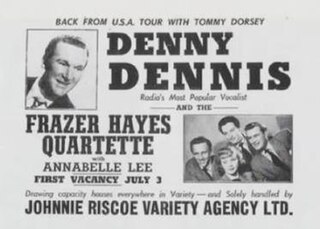
Denny Dennis was a British romantic vocalist during the 1930s to the 1950s, when British dance bands were at the peak of their popularity. He was a band singer, a solo recording star and a broadcaster.
















